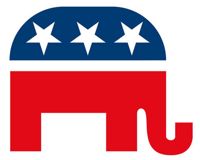 Facing a veto threat from the White House, House Republicans have backed off on a plan to reinstate enrollments in a program providing health insurance for people with pre-existing conditions.
Facing a veto threat from the White House, House Republicans have backed off on a plan to reinstate enrollments in a program providing health insurance for people with pre-existing conditions.
The plan to divert Affordable Care Act funds to the Pre-existing Condition Insurance Plan (PCIP) was scheduled for an April 24 vote, but GOP leaders delayed it indefinitely.
The White House said programs under the Prevention and Public Health Fund were essential to the Affordable Care Act’s success. The GOP charged it was a slush fund controlled by Health and Human Services.
“By concentrating on the causes of chronic disease, the fund helps more Americans stay healthy,” the administration said in a statement threatening a veto.
Running low on funding, the federal PCIP ended enrollments in mid-February 2013, looking forward to the Jan. 1, 2014, debut of insurance policies sold by state health exchanges (marketplaces). At that time, insurance companies will be required to accept people with pre-existing conditions at average rates for those of similar ages and residences.
The federal high-risk pool continues to subsidize care nationwide for those already signed up, but it now offers nothing to potential applicants.
In California, the PCIP run by the Managed Risk Medical Insurance Board stopped accepting applications March 3, 2013. It was one of the state programs funded by the federal PCIP. The federal program operates directly in 23 states.
 The GOP legislation, HR 1549, would reroute as much as $4 billion from the Obamacare PCIP. (The GOP measure is dubbed the Helping Sick Americans Now Act.)
The GOP legislation, HR 1549, would reroute as much as $4 billion from the Obamacare PCIP. (The GOP measure is dubbed the Helping Sick Americans Now Act.)
A rival Democratic proposal, HR 1578, would reopen enrollments using funding from a temporary increase in cigarette taxes. (The fund targeted by the GOP runs tobacco education campaigns).
The White House said of the GOP effort: “While the administration would like to extend coverage to as many Americans as possible, rather than finding common ground on a funding source, this legislation effectively would repeal part of the Affordable Care Act.
The stop-gap funding measure marks a new strategy by Republicans, who have made numerous failed attempts to repeal the Affordable Care Act. But some conservative groups have blasted the GOP plan for pre-existing conditions as another expansion of government into the health care industry.
Sponsor Rep. Joe Pitts, R-Pa. (pictured, above right) said: “Right now, a program intended to help sick Americans is closed off to new enrollees because the president won’t transfer money that is available right now. My bill takes money from a wasteful, duplicative fund, moves it into a program that has bipartisan support and helps pay down the debt.”
House Majority Leader Eric Cantor was pushing for the GOP bill, but Democrats were pushing back. The House Democrats “voted (in committee) against allowing for the access to insurance coverage for pre-existing condition patients,” he said.
The high-risk program for pre-existing conditions was one of the first major provisions to go into effect after the 2010 enactment of the Affordable Care Act.
Speak Your Mind